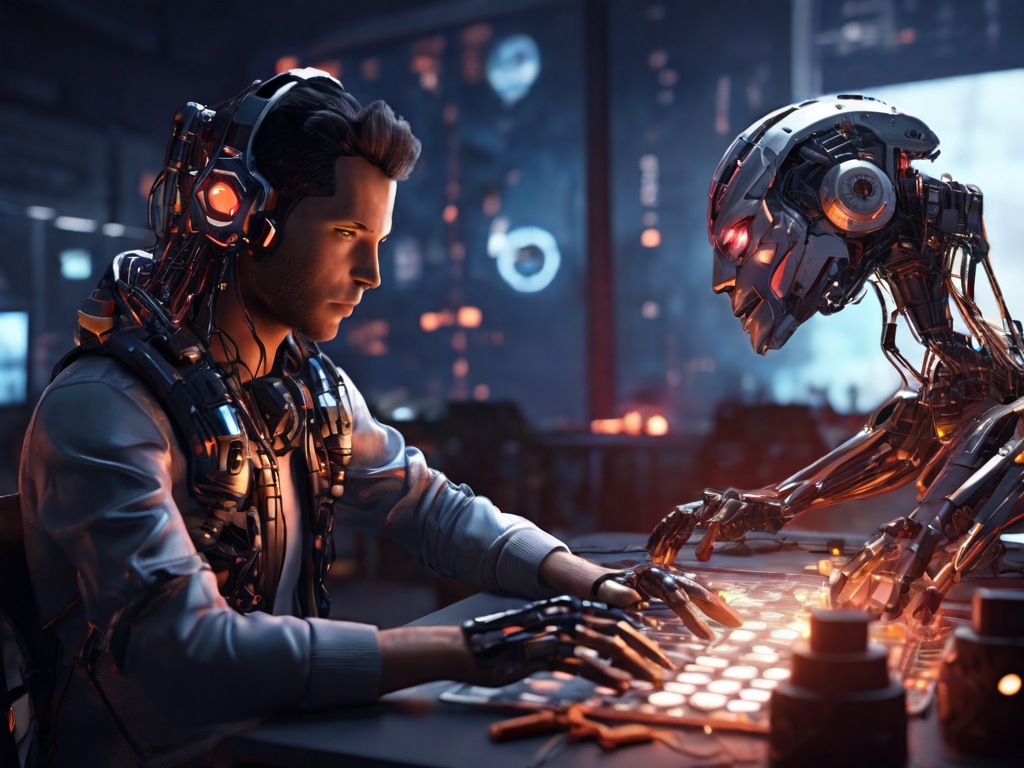
The use of artificial intelligence (AI) in game creation has become essential. It makes the gameplay more dynamic, engaging, and customized, which completely changes the gaming experience. We will look at the process of integrating AI into game creation in this article. We’ll give instances of how various forms of AI might improve player experience across a range of game genres.
Introduction to AI in Game Development
To replicate human intelligence in-game characters and aspects, AI in game production uses algorithms and data-driven models. More realistic and captivating interactions inside the game environment are the aim. With AI, game creators may create huge and varied game worlds, challenging and adaptive opponents, and player-based gaming experiences that are tailored to each player.
Examples of AI in Different Game Genres
1. Role-Playing Games (RPGs)
The story and gameplay of role-playing games can be enhanced by the use of AI to generate lively, intelligent NPCs. Artificial intelligence-driven algorithms control NPC behavior. Because of them, NPCs may respond to player actions, act believable, and adhere to established protocols. Moreover, the AI powers the game’s generative quest generation engine, which provides players with an endless stream of unique tasks and difficulties.
2. First-Person Shooters (FPS)
First-person shooter game developers employ AI to create intelligent enemies, which increases the difficulty of the gameplay. For instance, in “Halo,” the AI in command of the enemy characters plots, hides and moves to the side in response to the player’s moves.
3. Strategy Games
AI dictates how competing civilizations behave in strategy games such as “Civilization VI,” making choices about resource management, warfare, and diplomacy. To create a competitive experience, the AI needs to be able to plan ahead and adjust to the player’s strategies.
4. Sports Games
In sports games like “FIFA,” artificial intelligence generates realistic and captivating experiences. Player positioning, strategies, and game rules are only a few of the many aspects that AI considers. The spontaneity and strategy of actual athletic events can be experienced by consumers through realistic simulations made possible by this. Because artificial intelligence (AI) is always adapting to in-game events, it helps create a competitive and fascinating gaming environment that can keep players’ attention.
Integration Process
| RPGs | FPS | Strategy Games | Sports Games | |
| Design and Planning | Define how AI will be used to control NPC behavior and generate quests. | Outline the behaviors and tactics AI-controlled enemies should exhibit. | Define the decision-making processes and strategic priorities of AI-controlled factions. | Plan the AI’s role in controlling player movements, tactics, and game dynamics. |
| Data Collection and Preparation | Gather data on player interactions and quest outcomes to train the AI. | Analyze player strategies and enemy performance to inform AI development. | Collect data on player strategies and AI performance to refine algorithms. | Gather data on real-life sports tactics and player behavior. |
| Development | Implement AI algorithms that dictate NPC routines and procedural generation rules. | Code AI routines that allow enemies to adapt to player actions and coordinate attacks. | Implement AI systems that manage resource allocation, diplomacy, and military tactics. | Develop AI algorithms that simulate realistic player movements and decision-making. |
| Testing and Iteration | Playtest the game to ensure NPCs behave as expected and quests are engaging. | Conduct extensive testing to fine-tune enemy behavior and ensure a balanced challenge. | Test the AI’s strategic capabilities to ensure it provides a challenging and fair competition. | Test the AI in various scenarios to ensure it behaves realistically and enhances gameplay |
| Deployment and Monitoring | Monitor player feedback and make adjustments to improve NPC behavior and quest generation. | Use analytics to track enemy performance and player satisfaction, making iterative improvements. | Continuously monitor and adjust AI behavior based on player feedback and game outcomes. | Use player feedback and performance data to make continuous improvements to the AI. |
Conclusion
Integrating AI into game creation is a multi-step process that includes planning, gathering data, programming, testing, and monitoring. Artificial intelligence (AI) can help game developers create more compelling and realistic gaming experiences across a range of game genres. AI may produce realistic player behavior in sports games, adaptive enemies in first-person shooter games, lifelike non-player characters in role-playing games, or cunning opponents in strategy games, among other ways that it can totally transform the way games are developed and played. Here at Melior Games, our mission is to push the boundaries of game production by utilizing AI to produce innovative gaming experiences.




